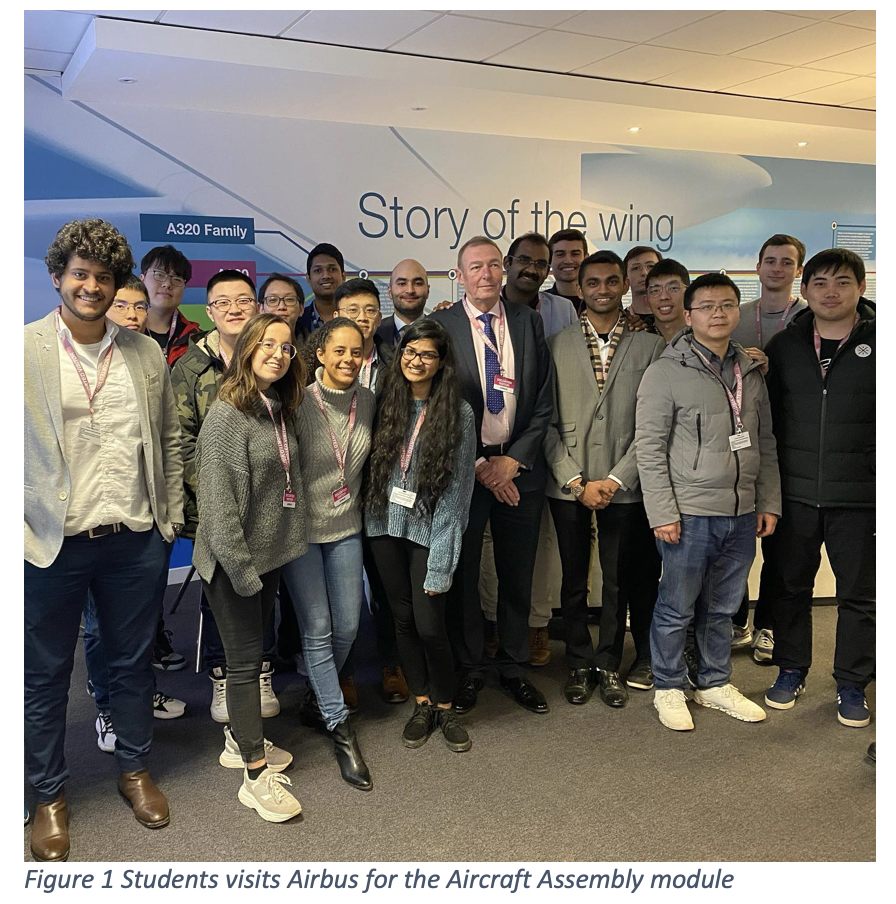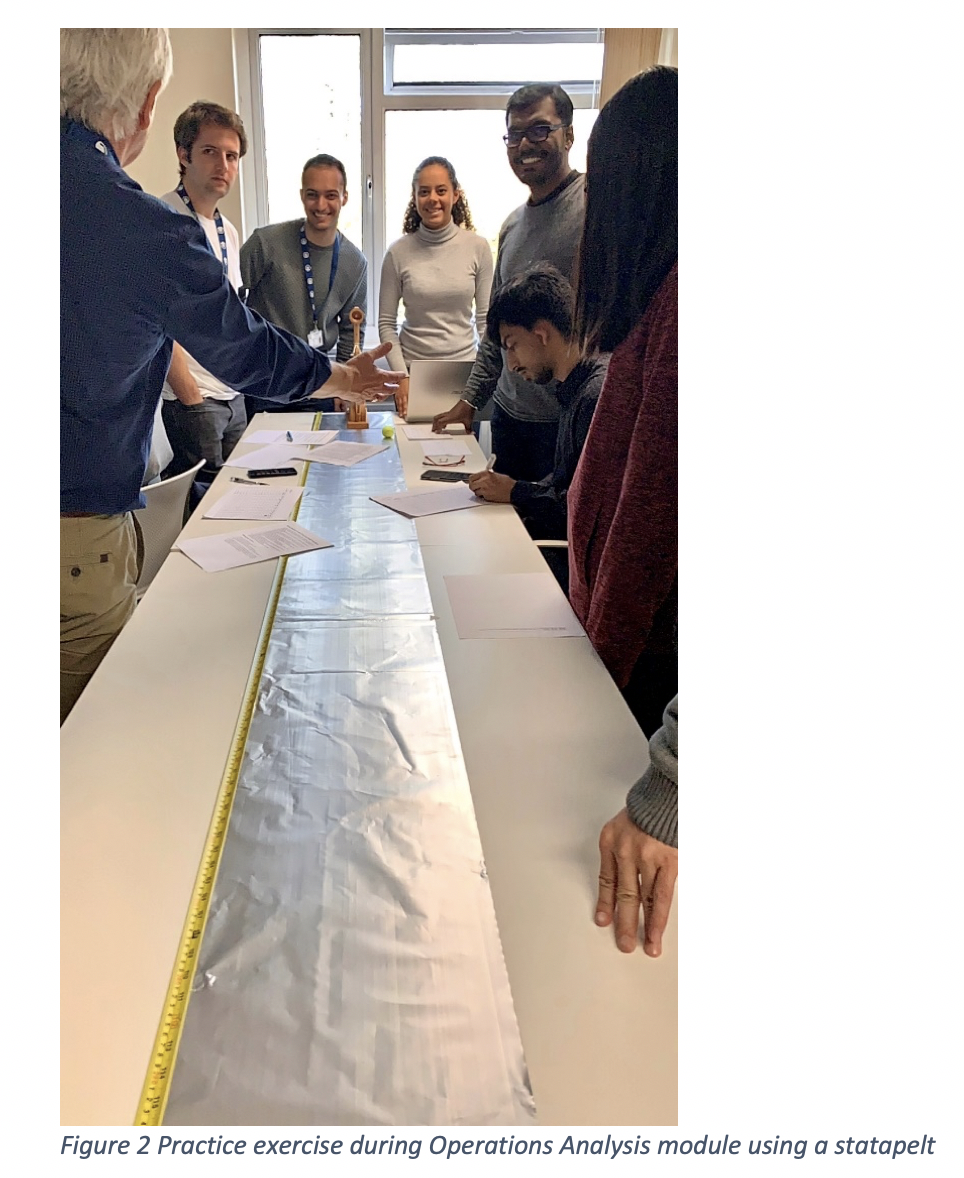Aerospace manufacturing MSc – moving from taught modules to industrial practice
19/02/2020

Students have completed their eight taught modules and getting ready for their group projects. This will be an exciting time of their studies, as they will be asked to work on industry scale projects, sponsored by industry, putting in practice all the things that they learned during the last four months. They will work in groups with students from the other manufacturing MS courses in multidisciplinary projects. Projects focused on manufacturing related problems, from proposing solutions to pharmaceutical companies on how to control the cost of loss quality to proposing productivity improvements to inventory controlling companies. During the next 3 months they will deliver solutions and at the same time improve their “soft” transferable skills such as team working, communications and negotiations skills, presentation skills and project management.
Aerospace Manufacturing MSc in focus
Aerospace manufacturing MSc aims to develop the next generation of aerospace manufacturing engineers and managers who will be able to bring about improvements and changes to the way the aerospace manufacturing business operates. The course was first introduced in 2012 and now has a large number of alumni working for a range of aerospace related companies. It was accredited by RAEs, IMechE and IET back in 2015. For achieving the intended learning outcomes of the course, the course team has put together a number of high quality modules that the students are able to choose from. Five modules are compulsory, and the remaining three can be elected from a group of five allowing the students to “flavour” the course more to their aspirations.
Their studies start with “Operations Management” module where they focus on capacity, scheduling, inventory and quality management. They then can decide between materials processing related modules (such as “Additive and subtractive manufacturing processes”, “High performance composites”, “Advanced welding processes”, etc.) or advanced operations related modules (such as operations analysis).
They cover topics related to the core of manufacturing operations, such as the “supply chain management” principles, the “manufacturing strategy” decisions and specialised topics related to aerospace manufacturing sector such as “Aircraft assembly” processes. Taught modules are delivered at high intensity, with each module taught over a single week.

At the end of their taught modules, they work on a group project for three months, and then they work for another four months on their individual research project.
The Aerospace Manufacturing MSc cohort typically consists of a mix of students from Europe and overseas, with different cultures and experiences which adds another dimension to academic studies. Throughout the year, the students support each other both within their own MSc and across the MSc courses where modules are shared.
Opportunities to engage with industry
On campus there are further opportunities for students to engage with new ideas and future strategies for manufacturing. Some of the following events held at Cranfield University are examples of this.
Manufacturing 2075 is held every December focusing on how manufacturing will look in more than 50 years from now. The National Manufacturing Debate takes place every May, where key UK manufacturing stakeholders get together to discuss the nation’s manufacturing strategy.
Students also have the chance to present their own ideas on global manufacturing challenges through a Student Think Tank event that is organised every year and streamed online.
For more information or to apply for this MSc, please visit the Cranfield website.
Categories & Tags:
Leave a comment on this post:
You might also like…
From classroom to cockpit: What’s next after Cranfield
The Air Transport Management MSc isn’t just about learning theory — it’s about preparing for a career in the aviation industry. Adit shares his dream job, insights from classmates, and advice for prospective students. ...
Setting up a shared group folder in a reference manager
Many of our students are now busy working on their group projects. One easy way to share references amongst a group is to set up group folders in a reference manager like Mendeley or Zotero. ...
Company codes – CUSIP, SEDOL, ISIN…. What do they mean and how can you use them in our Library resources?
As you use our many finance resources, you will probably notice unique company identifiers which may be codes or symbols. It is worth spending some time getting to know what these are and which resources ...
Supporting careers in defence through specialist education
As a materials engineer by background, I have always been drawn to fields where technical expertise directly shapes real‑world outcomes. Few sectors exemplify this better than defence. Engineering careers in defence sit at the ...
What being a woman in STEM means to me
STEM is both a way of thinking and a practical toolkit. It sharpens reasoning and equips us to turn ideas into solutions with measurable impact. For me, STEM has never been only about acquiring ...
A woman’s experience in environmental science within defence
When I stepped into the gates of the Defence Academy it was the 30th September 2019. I did not know at the time that this would be the beginning of a long journey as ...






